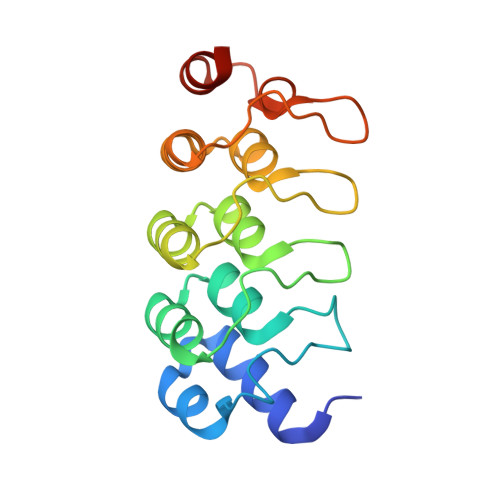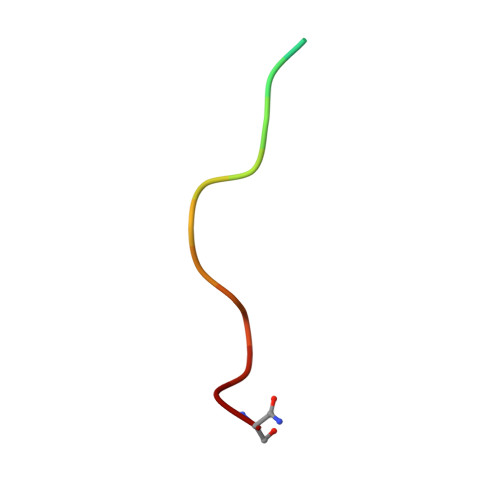Structural basis and sequence rules for substrate recognition by tankyrase explain the basis for cherubism disease.
Guettler, S., Larose, J., Petsalaki, E., Gish, G., Scotter, A., Pawson, T., Rottapel, R., Sicheri, F.(2011) Cell 147: 1340-1354
- PubMed: 22153077
- DOI: https://doi.org/10.1016/j.cell.2011.10.046
- Primary Citation of Related Structures:
3TWQ, 3TWR, 3TWS, 3TWT, 3TWU, 3TWV, 3TWW, 3TWX - PubMed Abstract:
The poly(ADP-ribose)polymerases Tankyrase 1/2 (TNKS/TNKS2) catalyze the covalent linkage of ADP-ribose polymer chains onto target proteins, regulating their ubiquitylation, stability, and function. Dysregulation of substrate recognition by Tankyrases underlies the human disease cherubism. Tankyrases recruit specific motifs (often called RxxPDG "hexapeptides") in their substrates via an N-terminal region of ankyrin repeats. These ankyrin repeats form five domains termed ankyrin repeat clusters (ARCs), each predicted to bind substrate. Here we report crystal structures of a representative ARC of TNKS2 bound to targeting peptides from six substrates. Using a solution-based peptide library screen, we derive a rule-based consensus for Tankyrase substrates common to four functionally conserved ARCs. This 8-residue consensus allows us to rationalize all known Tankyrase substrates and explains the basis for cherubism-causing mutations in the Tankyrase substrate 3BP2. Structural and sequence information allows us to also predict and validate other Tankyrase targets, including Disc1, Striatin, Fat4, RAD54, BCR, and MERIT40.
- Centre for Systems Biology, Samuel Lunenfeld Research Institute, Mount Sinai Hospital, 600 University Avenue, Toronto, Ontario M5G 1X5, Canada.
Organizational Affiliation:



















